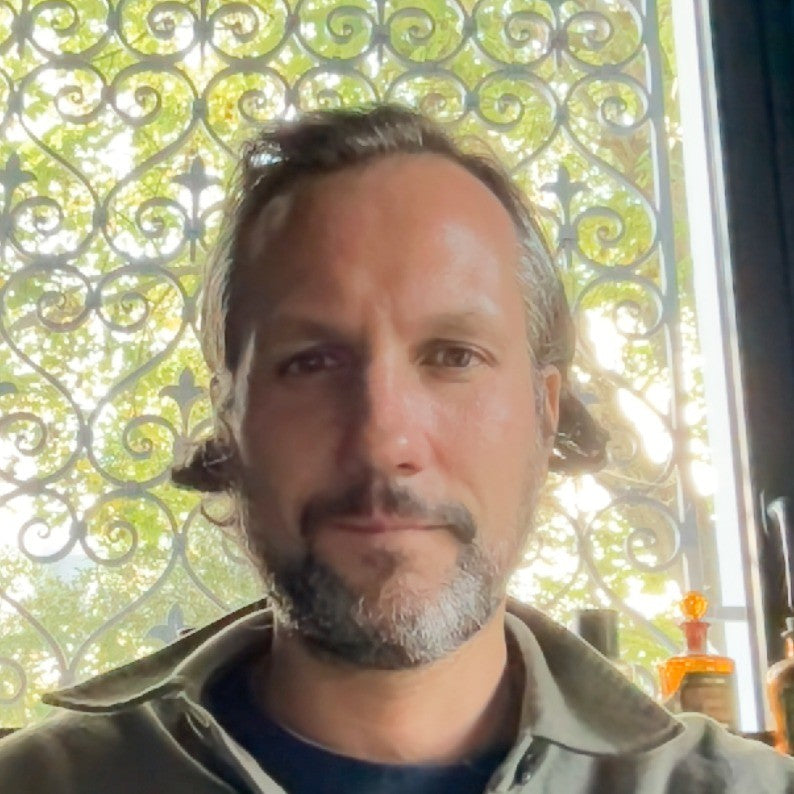Waking up well before the alarm, feeling tired and unable to fall back to sleep is what many people with morning insomnia endure. This disorder, also known as early morning awakening, can turn your mornings into a real source of frustration, affecting your energy, mood and overall quality of life.
In this article, we will talk about their causes, consequences and existing solutions to overcome this type of insomnia.
- What is morning insomnia?
- Causes of Morning Insomnia
- Solutions to regulate morning insomnia
- The consequences of morning insomnia
| Solution | Description |
|---|---|
| Cognitive Behavioral Therapy (CBT) | CBT is used to change behaviors and misconceptions about sleep, including bed time restriction and stimulus control. |
| Natural methods: Phytotherapy (Valerian, Passionflower, Hawthorn) | Valerian, passionflower, and hawthorn are herbs that can improve sleep. |
| Aromatherapy (Lavender, Bergamot, Petitgrain Bitter Orange) | Essential oils such as lavender, bergamot and bitter orange are recommended to soothe the mind and promote sleep. |
| Improved sleep habits (Regular schedule, Adequate bedroom) | It is essential to maintain regular schedules, avoid screens before bed and create a quiet, dark environment. |
| Relaxation techniques (Progressive relaxation, Breathing 3-6-5) | Relaxation techniques such as progressive muscle relaxation and the 3-6-5 breathing method help reduce anxiety and promote sleep. |
What is morning insomnia?
Morning insomnia also called early morning insomnia or early morning insomnia is a sleep disorder occurring when a person wakes up too early in the morning without any apparent cause, accompanied by a feeling of unrestful sleep.
Morning insomnia is characterized by:
- recurrence or frequency of occurrence : early waking occurs more than three times a week for more than three months;
- impact : early waking up must have an impact on quality of life;
- the absence of an apparent cause : early waking must not be linked to a physical or psychological cause, manifest itself outside of any somatic pathology or in connection with external factors linked to the environment such as noise or unsuitable lighting.
In some cases, we experience morning insomnia with waking up at a fixed time, regardless of the time we fell asleep. But what causes this insomnia?
Causes of Morning Insomnia
Psychological Causes of Morning Insomnia
Anxiety , although more frequently linked to sleep onset insomnia, can also generate intrusive thoughts in the early morning. Chronic stress disrupts sleep regulation mechanisms, maintaining a situation of hyper-arousal that prevents falling into deep sleep.
Finally, emotional disturbances can lead to mental ruminations that prevent returning to sleep after waking up early.

Physiological causes of morning insomnia
Hormonal changes , particularly those related to menopause or pregnancy, can cause morning insomnia.
Thyroid disorders , such as hyperthyroidism , are also known to contribute to insomnia.
Natural aging can lead to decreased melatonin production and changes in circadian rhythm, contributing to early waking.
Other factors that trigger morning insomnia
Environmental factors such as excessive light, noise or an unsuitable temperature in the bedroom can disrupt sleep and cause early awakenings.
Certain lifestyle habits such as alcohol consumption, late meals, physical activity in the evening or the use of screens before bed can also contribute to morning insomnia . Finally, medical conditions such as sleep apnea, chronic pain or the side effects of certain medications can cause early awakenings.
Solutions to regulate morning insomnia
There are several solutions to relieve morning insomnia. Do not hesitate to consult your doctor if the symptoms persist despite these tips.
Behavioral therapy to regulate morning insomnia
Cognitive Behavioral Therapy (CBT) is considered the first-line treatment for insomnia, including morning insomnia .
It is based on two complementary aspects: behavioral and cognitive . CBT aims to correct misconceptions about sleep and to modify certain behaviors.
There are two main techniques used in CBT for insomnia:
- The first is the restriction of time spent in bed , which aims to increase sleep pressure.
- The second is stimulus control , which aims to associate the bed and bedroom only with sleep, through a process of conditioning. These approaches help resynchronize the brain to the correct sleep-wake rhythm.
Natural approaches to regulate morning insomnia
There are several natural methods that can be effective in treating morning insomnia.
In herbal medicine, the use of plants such as valerian, passionflower or hawthorn can help improve sleep .
In aromatherapy, essential oils of lavender, bergamot or bitter orange are often recommended. In addition, some homeopathic remedies can be beneficial for treating insomnia .

The combination of soothing plants, melatonin and magnesium will help you fight against morning insomnia . Discover our food supplements!
Improving Habits to Regulate Morning Insomnia
Adopting good sleep hygiene is essential to combat morning insomnia . It is important to maintain regular sleep schedules, even on weekends, and to create an environment conducive to sleep: a dark, quiet room at the right temperature. Avoiding screens at least an hour before bedtime and engaging in regular physical activity, but not too close to bedtime, are also important recommendations.
Relaxation techniques
Various relaxation techniques can help reduce stress and anxiety, thereby promoting better sleep and preventing morning insomnia.
Progressive relaxation aims to gradually relax each muscle group.
Breathing techniques can help calm the mind and body before sleep. For example, the 3-6-5 method involves performing 6 breathing cycles 3 times a day for 5 minutes. Each cycle consists of 5 seconds of inhalation and 5 seconds of exhalation, resulting in a return to calm that will continue for several hours.

The consequences of morning insomnia
The consequences of morning insomnia on physical health
Morning insomnia can have a significant impact on physical health. Constant fatigue is one of the most immediate consequences, leading to a decline in physical performance .
Lack of sleep also weakens the immune system, increasing susceptibility to infections .
On a physiological level, Lack of sleep can slow metabolism, contributing to weight gain and increasing the risk of diabetes.
The mental health consequences of morning insomnia
The effects of morning insomnia on mental health are equally concerning. Cognitive impairment is common, with difficulty concentrating, decreased memory and reduced learning abilities.
Emotionally, irritability is a common consequence. The risk of depression is significantly increased, with people with insomnia being 4 times more likely to develop depression. Anxiety is also exacerbated, creating a vicious cycle where anxiety disrupts sleep, which in turn increases anxiety.

The professional consequences of morning insomnia
Morning insomnia can have a significant impact on professional life. Reduced productivity is a direct consequence of fatigue and cognitive impairment. The risk of professional errors increases due to decreased alertness and concentration.
Absenteeism also tends to increase, with people suffering from insomnia being 3 times more likely to miss work. In addition, irritability and emotional instability can lead to relationship difficulties at work.
Safety implications of morning insomnia
Safety is a very important aspect affected by morning insomnia. Decreased alertness and reduced reaction times significantly increase the risk of accidents. In particular, the risk of being involved in a road accident is multiplied by 3 for people suffering from insomnia.
As you will have understood, morning insomnia is not to be taken lightly! This is why treating it with the advice in this article is important! But be careful, if the problems persist, consult a professional!







